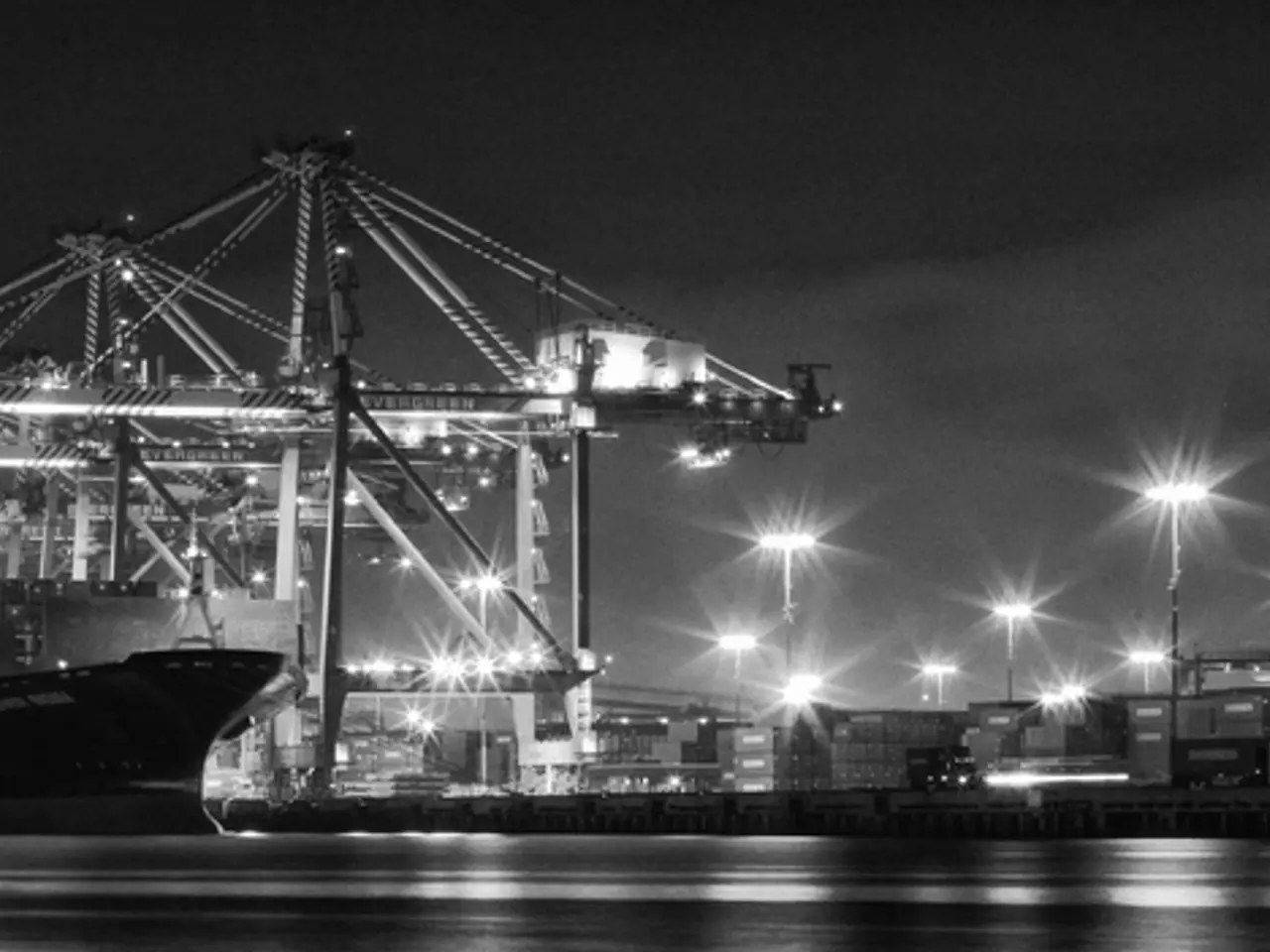A significant portion of the industry predicts a decline in the US market's significance
President Donald Trump's tariff policy has raised concerns for German industrial companies and global trade relations, according to a survey conducted by the Munich Ifo Institute. The survey, which polled 1500 companies on Thursday, revealed that over 60% of German industrial companies report feeling adverse effects from the tariffs imposed by the U.S.
The tariffs have disrupted established trade relationships, causing volatility and uncertainty in global markets. Export-intensive industries such as mechanical engineering (87%) and metal production (68%) are particularly affected, with these sectors facing the threat of a 30% tariff on goods exported to the U.S. Chancellor Friedrich Merz warned that such a measure would "strike at Germany's core export industry" and overshadow Germany's entire economic strategy.
The tariffs have led to a slowdown in investments in Germany, with 21% of companies postponing investment projects and 8% cancelling them entirely. Similarly, almost 30% of companies with investment plans in the U.S. have postponed projects, and 15% have cancelled them entirely. These companies are forced to reassess global markets and redirect investments due to Trump's tariffs.
The survey found that Trump's trade policy is causing a shift in global trade relations away from the U.S., the world's largest economy. One-third of German industrial companies anticipate a loss of significance for the U.S. market, and only 17% of the surveyed companies expect an increase in the U.S. market.
The Ifo trade expert, Andreas Baur, stated that Trump's tariffs are a profound trade policy shock. The imposition of high tariffs (50% on steel and aluminum, and 25-30% on cars and other goods) led to a global market crash, with major U.S. stock indexes declining sharply and the dollar weakening. Although some tariffs were paused temporarily after severe market reaction, the ongoing trade tensions continue to strain transatlantic economic alliances.
Economists warn that the trade war could reduce global GDP by around 1%, showing a significant macroeconomic impact. The tariffs complicate cooperation with key allies and impose high costs on industries, including defense and infrastructure sectors in the U.S., indicating rising national security costs associated with this trade policy.
In conclusion, Trump's tariff policy has specifically harmed German industry by threatening core exports with high levies, undermining Germany's export-driven economy, and contributing to global financial market instability. The policy has also strained U.S.-EU relations and disrupted the global trade system, with lasting economic and strategic consequences for many stakeholders worldwide.
The tariff policy initiated by President Donald Trump has instigated concerns among German industrial companies, as stated in the survey by the Munich Ifo Institute. This policy, meant to regulate trade, has disrupted the employment prospects of these companies, given the threat of 30% tariffs on goods exported to the U.S.
The financial repercussions of this trade policy are evident, as investments in Germany have been slowing down, with 21% of companies postponing investment projects and 8% cancelling them entirely. This policy shift has led to industries reassessing global markets and redirecting investments due to Trump's tariffs, ultimately impacting the industry and finance sectors globally.




